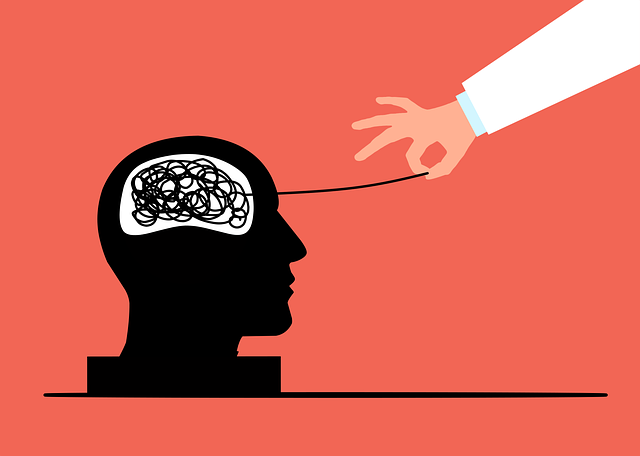Lone Tree Neuro Disorders Therapy emphasizes comprehensive risk management in mental healthcare, prioritizing cultural sensitivity and empathy. This involves addressing high-stress environments, diverse coping mechanisms, language differences, and burnout potential. Their strategy includes thorough risk assessment, emotional intelligence development, regular training, and supervision to enhance therapeutic outcomes and professional resilience. By integrating self-care routines, cultural competency, and empathy-building exercises, Lone Tree creates a safe, supportive environment for clients seeking anxiety relief. Continuous monitoring and adaptation to best practices ensure optimal client care and minimize risks.
Effective risk management planning is crucial for mental health professionals, especially at institutions like Lone Tree Neuro Disorders Therapy, where navigating complex patient needs is paramount. This article explores a structured approach to identifying and mitigating risks within mental health practices. We delve into understanding the unique risks inherent in this field, from potential hazards related to patient vulnerability to staff stress. By presenting a comprehensive risk management plan, we highlight strategies for creating safe, therapeutic environments at Lone Tree Neuro Disorders Therapy and ensuring continuous improvement in care delivery.
- Understanding Risk in Mental Health Practice
- Identifying Potential Hazards at Lone Tree Neuro Disorders Therapy
- Developing a Comprehensive Risk Management Plan
- Implementing Strategies for Safe and Effective Care
- Continuous Monitoring and Improvement
Understanding Risk in Mental Health Practice

In the field of mental health, understanding risk is a cornerstone of effective practice. Risk management planning is not merely about identifying potential hazards but also about recognizing the unique challenges faced by professionals in this domain. Mental health practitioners, especially those offering specialized services like Lone Tree Neuro Disorders Therapy, navigate a complex landscape where each client’s journey is distinct and often fraught with unpredictable outcomes.
This nuanced approach to risk involves acknowledging the impact of high-stress environments, intense emotional demands, and the potential for burnout, which are prevalent issues in this profession. As such, integrating strategies for stress management and burnout prevention into the fabric of mental wellness coaching programs development becomes imperative. By proactively addressing these risks, professionals can enhance their resilience and better support their clients’ journeys towards improved mental health and wellness.
Identifying Potential Hazards at Lone Tree Neuro Disorders Therapy

At Lone Tree Neuro Disorders Therapy, identifying potential hazards is a multifaceted process that requires vigilance and a nuanced understanding of the unique challenges faced by individuals seeking mental health services. One of the primary areas of focus should be on Cultural Sensitivity in Mental Healthcare Practice. Recognizing and addressing cultural barriers is essential to creating a safe and supportive environment for all clients. For instance, therapists need to be mindful of language differences, cultural taboos surrounding mental health, and varying coping mechanisms across diverse backgrounds.
Moreover, implementing Empathy Building Strategies plays a pivotal role in risk management. Therapists should foster strong therapeutic alliances by actively listening, validating emotions, and demonstrating genuine care. This approach not only enhances the therapeutic relationship but also facilitates better mood management, which is crucial for mitigating risks associated with mental health disorders. Effective communication, coupled with cultural competency and empathy, forms the backbone of a comprehensive risk management plan at Lone Tree Neuro Disorders Therapy.
Developing a Comprehensive Risk Management Plan

Developing a comprehensive risk management plan is an essential step for mental health professionals at Lone Tree Neuro Disorders Therapy to ensure the well-being and resilience of both their clients and themselves. This strategy involves meticulously assessing potential risks within the therapeutic environment, including identifying vulnerable populations, recognizing triggers, and anticipating crises. By implementing evidence-based practices, such as integrating emotional intelligence and coping skills development, therapists can foster a safe and supportive space while equipping clients with tools to navigate challenges.
A robust risk management plan at Lone Tree Neuro Disorders Therapy goes beyond crisis intervention; it empowers professionals to proactively cultivate inner strength development in their clientele. Through regular training sessions and ongoing supervision, therapists enhance their emotional intelligence, enabling them to detect subtle cues of distress and provide timely interventions. This holistic approach not only minimizes risks but also optimizes the therapeutic outcome, fostering long-term mental health and resilience among those seeking support.
Implementing Strategies for Safe and Effective Care

Implementing strategies for safe and effective care is paramount in mental health professions, especially at Lone Tree Neuro Disorders Therapy. This involves integrating various practices that prioritize both patient well-being and professional resilience. For instance, encouraging healthcare providers to cultivate a robust Self-Care Routine Development for Better Mental Health is essential. This includes regular exercises promoting self-awareness, mindfulness, and stress management, which are crucial for maintaining emotional equilibrium and preventing burnout.
Professionals should also undergo Healthcare Provider Cultural Competency Training to navigate diverse patient populations effectively. This training equips them with the knowledge and skills to offer culturally sensitive care, fostering trust and improving outcomes. Furthermore, incorporating Self-Awareness Exercises into clinical settings allows professionals to reflect on their own biases, emotions, and responses, enabling them to provide more empathetic and nuanced therapy.
Continuous Monitoring and Improvement

Effective risk management planning for mental health professionals involves an ongoing process of continuous monitoring and improvement. This dynamic approach ensures that practices stay current with evolving research and best practices, adapting to new challenges in the field of mental health. Regularly reviewing and updating protocols allows healthcare providers at Lone Tree Neuro Disorders Therapy to anticipate potential risks and implement strategies that foster a safe and supportive environment for clients seeking anxiety relief.
Through continuous monitoring, professionals can assess the impact of their interventions and identify areas needing improvement. This includes staying informed about emerging trends in Mental Health Awareness and participating in Healthcare Provider Cultural Competency Training. By embracing this proactive mindset, mental health professionals can enhance client outcomes, minimize risks, and contribute to a more comprehensive understanding of treating neuro disorders.
Mental health professionals, like those at Lone Tree Neuro Disorders Therapy, operate in a complex environment where risk management is not just beneficial but essential. By understanding risks, identifying potential hazards, and implementing strategies outlined in this article—from developing comprehensive plans to continuous monitoring—therapists can ensure safe and effective care for their clients. This proactive approach not only protects individuals but also enhances the overall quality of mental health services provided by Lone Tree Neuro Disorders Therapy.














